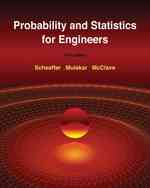- ホーム
- > 洋書
- > 英文書
- > Computer / General
Full Description
Technology is moving at an exponential pace in this era of computational intelligence. Machine learning has emerged as one of the most promising tools used to challenge and think beyond current limitations. This handbook will provide readers with a leading edge to improving their products and processes through optimal and smarter machine learning techniques.
This handbook focuses on new machine learning developments that can lead to newly developed applications. It uses a predictive and futuristic approach, which makes machine learning a promising tool for processes and sustainable solutions. It also promotes newer algorithms that are more efficient and reliable for new dimensions in discovering other applications, and then goes on to discuss the potential in making better use of machines in order to ensure optimal prediction, execution, and decision-making.
Individuals looking for machine learning-based knowledge will find interest in this handbook. The readership ranges from undergraduate students of engineering and allied courses to researchers, professionals, and application designers.
Contents
Chapter 1 Random Variables in Machine Learning Chapter 2 Analysis of EMG Signals using Extreme Learning Machine with Nature Inspired Feature Selection Techniques Chapter 3 Detection of Breast Cancer by Using Various Machine Learning and Deep Learning Algorithms Chapter 4 Assessing the Radial Efficiency Performance of Bus Transport Sector Using Data Envelopment Analysis Chapter 5 Weight-Based Codes—A Binary Error Control Coding Scheme—A Machine Learning Approach Chapter 6 Massive Data Classification of Brain Tumors Using DNN: Opportunity in Medical Healthcare 4.0 through Sensors Chapter 7 Deep Learning Approach for Traffic Sign Recognition on Embedded Systems Chapter 8 Lung Cancer Risk Stratification Using ML and AI on Sensor- Based IoT: An Increasing Technological Trend for Health of Humanity Chapter 9 Statistical Feedback Evaluation System Chapter 10 Emission of Herbal Woods to Deal with Pollution and Diseases: Pandemic-Based Threats Chapter 11 Artificial Neural Networks: A Comprehensive Review Chapter 12 A Case Study on Machine Learning to Predict the Students' Result in Higher Education Chapter 13 Data Analytic Approach for Assessment Status of Awareness of Tuberculosis in Nigeria Chapter 14 Active Learning from an Imbalanced Dataset: A Study Conducted on the Depression, Anxiety, and Stress Dataset Chapter 15 Classification of the Magnetic Resonance Imaging of the Brain Tumor Using the Residual Neural Network Framework








